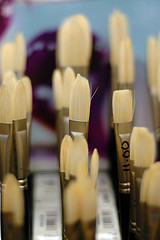How many times have I heard phrases such as ‘let’s take politics out of it for a minute’, or ‘regardless of the politics’, or worst of all (because it comes from politicians) ‘that’s just playing politics’? When did ‘politics’ become a dirty word? And when did it become possible to believe we should separate politics from the rest of life – economics, culture, relationships?
Well I’m going to lay my cards on the table here and declare that I don’t think ‘politics’ is a dirty word, and I don’t think you can separate politics from anything else. It’s not like separating an egg yolk from the egg white (tricky but possible especially if you have one of those handy little plastic egg separators or a couple of spoons and some nifty wrist action). Politics can’t be detached from any part of life not because it’s glued on really strongly but because it is both inside and outside every situation in which we find ourselves. A few years ago there was an advert by the Electoral Commission in which two men sit in a pub discussing whether it’s worth voting or not. One says he doesn’t ‘do politics’, whereupon the other one takes him through a typical day and points out that everything he does, including buying a pint of beer, is political. The ad implied that if you’re going to be politically active you have to vote – obviously that’s something that’s raised and talked through at every Democracy Outside performance! But it does rather sweetly and neatly make the point that all the parts of our life are political.
Relationships – who you love, who you live with, how you live with them, who controls the bank account, even how and where you met them.
Your job – whether you have a job, how you got it, what qualifications you had to have to get it, how you got these, and how secure your job is.
Your home – how big it is, how much it cost, how many people you share it with and how you are related to them, who owns it and your relationship to the owner, where it is and how much it costs to travel to work or school or to see your friends from there, whether you are able to come and go from it freely.
The safety of your community. The size of your family. The leafiness of your neighbourhood. The food you eat. The state of your health. All of these things are to do with class, race, gender and power. Your class, your race, your gender, and where you stand in relation to who has the economic power (how easy it is to make choices about your circumstances) and political power (how much influence you have to change things or make decisions about the way things should be).
But what about art and culture? Obviously ‘political art’ is political – for some really great recent examples see these performance artists demonstrate animal testing in a Lush shop window, and the Tate a Tate oil sponsorship protest audio tour for Tate Modern.
But even ‘non-political’ art is political. If you aren’t convinced, ask yourself a few questions the next time you’re in an art gallery or listening to a piece of music. Who made that art work / wrote that song? What was their race or gender? How easy was it for them to find the time to do it? How much support did they get from family and friends? How difficult was it for them to survive financially while making the work? Who paid for the final product and how much did it cost – what proportion of the average monthly or yearly salary? Were many made, or just limited editions, or even just one? Could everyone afford one? Where was the work displayed / performed? Who was able to go and see it? How much did it cost to get in?
Maybe you can’t separate politics and culture. After all, culture is just tradition (new traditions count!), tradition is history (and the future, or history that hasn’t happened yet), and history is politics.
Whether we realise it or not, we are political beings, being political all the time. Let’s wake up to that, and have fun with it – let’s get out there and play politics together.
Like Democracy Outside? On Facebook? Like Democracy Outside on Facebook
Help tour Democracy Outside around the UK – give us a fiver, a tenner, or some spare change: http://www.sponsume.com/project/demo-2012

